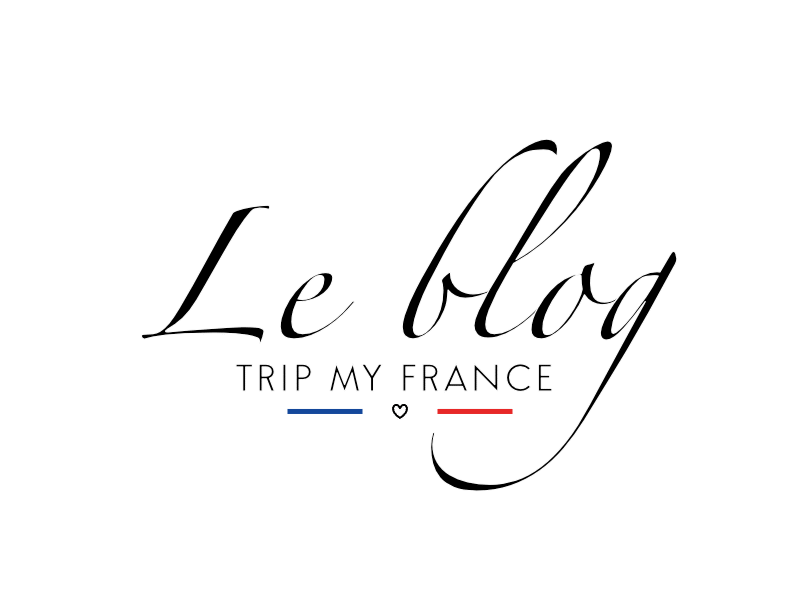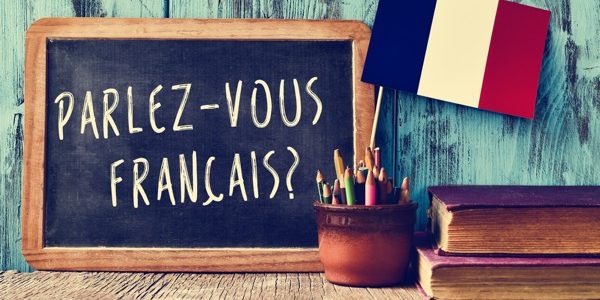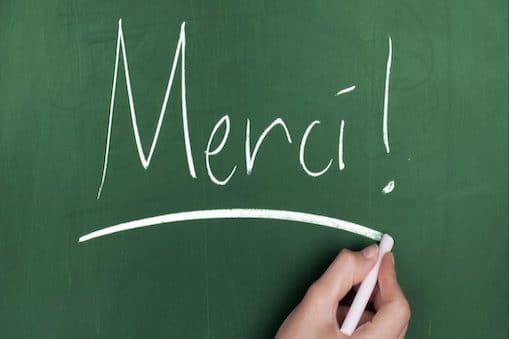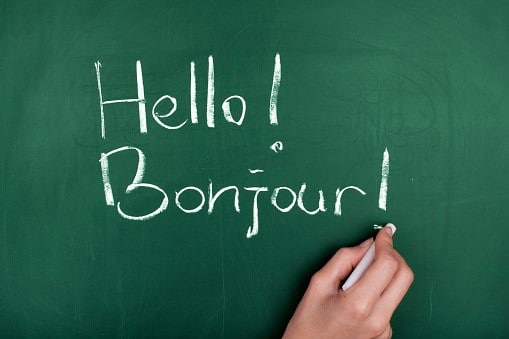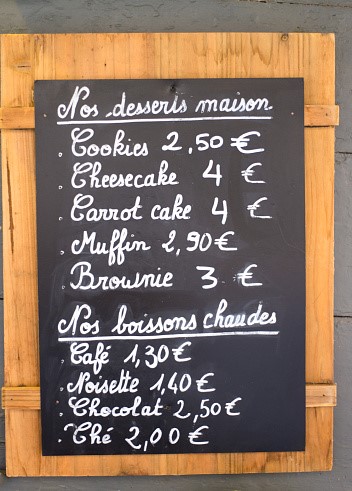Planning a future trip to France? Find the easiest way to learn French by focusing on the essentials words and phrases for travel purpose. Learn useful phrases in French with me!
Preparing for a trip is not just about reading 1000 tourist guides to immerse yourself in the culture of a country, make a few reservations in advance and succeed in closing your suitcase on the day of departure! Preparing for a trip is also an opportunity to learn a few words of a new language.
When traveling, in general, there is no room for the unnecessary! Your suitcase will never hold more than its volume, and your brain will only retain what it can hold. No need to hope to write a 17-page essay on Tolstoy’s War and Peace. Instead, focus on the essentials.
Being polite is important anywhere you go, here or abroad, because it shows respect for the person and the culture.
- oui (yes) / non (no)
- S’il te plaît. (Please. `{`informal`}`) / S’il vous plaît. (Please. `{`formal`}`)
- Merci. (Thank you.) / Merci beaucoup. (Thank you very much.)
- Je t’en prie. (You’re `{`informal`}` welcome.) / Je vous en prie. (You’re `{`formal`}` welcome.)
- Excusez-moi. (Excuse me.)
If there were tourists in America who just walked up to you and started asking questions or making requests of you, it might make you a little bit upset. Anyone would feel that way. However, most Americans in France walk up to locals and ask for directions or to take a photograph without so much as a “hello.” This is liable to upset them.
Even if you use the English word, “Hello,” instead of saying “Bonjour,” it’s more likely that the person will help you. However, if you’d like to appear more sensitive to French language and culture, a simple, “Bonjour,” before speaking to someone can go a long way.
Please, thank you, you’re welcome, sorry, hello, good-bye… All those words that are spoken to our children from birth, and that are emphasized when they are learning to speak. Why? Because these are polite words, and not to say them would be… rude!
- Salut. (Hello; Hi. `{`Informal`}`)
- Bonjour. (Hello; Good morning.)
- Bonsoir. (Good evening.)
- Au revoir. (Good-bye.)
- Salut. (Good-bye. `{`Informal`}`)
- À bientôt. (See you soon.)
- À tout de suite. (See you in a minute.)
- À plus tard. (See you later.)
- À la prochaine. (Until next time.)
- À demain. (See you tomorrow.)
- À la semaine prochaine. (See you next week.)
- À lundi. (See you on Monday.)
- Bonne journée ! (Have a good day!)
- Bonne nuit. (Good night. Used only when someone is going to sleep or retiring for the evening.)
- How are you? How is it going?
- Comment ça va ? (How’s it going?)
- Comment vas-tu ? (How are you? `{`Informal`}`) / Comment allez-vous? (How are you? `{`Formal`}`)
- Ça va ? (How’s it going ? `{`Informal`}`)
- Je vais bien, merci. (I’m fine, thank you.)
- Je vais très bien. (I’m very well.)
Beyond basic words and polite formulas, it is good to know some formulations of sentences and some vocabulary to communicate better.
- Je ne comprends pas. (I don’t understand.)
- Pouvez-vous répéter ? (Can you repeat that?)
- Pouvez-vous parler plus lentement ? (Could you speak slower?)
- Je ne parle pas bien français. (I don’t speak French very well.)
- Pouvez-vous traduire pour moi ? (Can you translate for me?)
- Parlez-vous anglais ? (Do you speak English?)
- Je suis perdu. (I’m lost.)
- Où est l’hôtel ? (Where is the hotel?)
- Où sont les toilettes? (Where is the restroom?)
- Comment dit-on __ en français ? (How do you say __ in French?)
The key is to imagine your journey, and to identify all the situations you will find yourself in (at the restaurant, at your hotel, in the metro or taking a taxi…).
If you are at the restaurant, these expressions could be helpful:
- La carte/le menu, s’il vous plaît. (The menu, please.)
- L’addition, s’il vous plaît. (The bill, please.)
- C'est combien? (How much is it?)
Have a look at the following videos which will help you order food in a French restaurant:
– For vocabulary
– For cultural information
If you are not good at foreign languages, why not rehearse what you’re going to need to say, as if you’re setting up a show! Don’t forget that most French people, especially in the tourism sector, speak English but might also have a terrible French accent too!
Indeed, by limiting yourself to the essentials, you will not necessarily understand the response of the locals. I think you guessed it. But at the risk of surprising you, not all people are uncouth fellows!
Besides, imagine that you are in a hurry, and that a stranger tells you: “ello, I’m looking for ze Empir State Bulding” and that he does not understand what you are answering… What are you going to do? Ignore him? Avoid him and leave without looking back? Or speak more quietly, by miming, or by drawing the way on an old piece of paper that you had in your bag? If you make the effort to try to make yourself understood, your interlocutors will do the same.
Familiarize yourself with some French phrases before your next big trip to France and don’t be afraid to speak some French! You are not at school and won’t get a bad grade if you don’t pronounce a word correctly! As the saying goes, ridicule is not fatal but it can only create some funny situations!
The best way to experience all that France has to offer is to fully immerse yourself in conversation with the locals. And now, it is up to you … and don’t forget to have fun!
If you want to learn more practical tips, I recommend you to read my previous article on how to tip in France.
